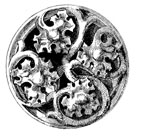
How to Form a Catholic Mind
WE LIVE AS WE THINK
Richard Weaver’s dictum, “Ideas have consequences,” is true both as regards a society and as regards an individual. Another way to put it would be to say, “We live as we think.” If this is true, then it would seem that all Catholics would live as Catholics, for surely the Faith they profess represents what they truly think. But we don’t always live that way. Part of the problem, of course, is that original sin makes it hard for us to resist the triple allurements of world and flesh and devil. With all due respect to their powers, however, these efficient tempters are not the entire cause of the often un-Catholic actions of many Catholics. Our lives give disturbing evidence of our basic failure to cultivate a Catholic mind — our failure to shape our thinking so that it is really Catholic in every area.
Orthodox Catholics are aware that they must ensure that their theology is faithful to the Church’s Magisterium. Generally also, they know that their philosophical ideas should be in harmony with the mind of the Church. And they know they must try to live according to the Church’s moral teachings. All this, of course, is a sine qua non. Yet there is more, a vast area often overlooked, an area crucial to the formation of a true Catholic mind.
If we were entirely logical beings, knowledge of the true principles of theology and philosophy would be sufficient to guide nearly all our thinking. We would simply deduce everything else from the first principles rooted in these two disciplines. But since Adam fell, such a rigorous but simple procedure has not been the way for most of us. Theology and philosophy are necessarily studied at a very abstract level, for by their own nature they do not usually deal with particular and concrete things. And because of this, too often Catholics are content to have their most abstract intellectual principles correct, and to order their personal lives properly, but in the area of thought that concerns many of our judgments about politics, society, and economics, we are content to take in our opinions from the culture around us.
For example, from the principle that the Catholic Church is the Mystical Body of Christ, a kind of continuation of our Lord’s Incarnation, we might come to realize that the most important conflict in the history of mankind is that between the Church and the world, and by extension, that between Catholic civilization and non-Catholic. But many Catholics are used to thinking in other terms, in terms of trade blocs, of “backward” or “advanced” nations, of the “march of freedom,” as if these were more fundamental concepts. A term like “the Third World” lumps together two such different countries as Peru and India, as if the most important thing about them was their level of economic development. This is a materialistic judgment, presupposing that material things are the most important index of a country’s attainments and character. Or take the term “the Free World.” The Cold War notion of the Free World presupposed that freedom (of what sort?) was the most important characteristic shared by a group of nations of whom none happened to have a Communist government. Yet as regards both politics and culture, is it fair to put secularist Sweden in the same column with Catholic Costa Rica? Are not their differing religious cultures at least as important as the fact that both are non-Communist?
You May Also Enjoy
The days of trusting what's going on deep behind the scenes in chanceries and in the Roman curia are over. Transparency is what's needed, not blind trust in some broken bureaucracy.
What must be closely examined is what the Potter series says about good and evil, and what defines each.
The entirety of the Christian faith hinges on the fact that God assumed creation to Himself in an unmatchable and eternal way.

